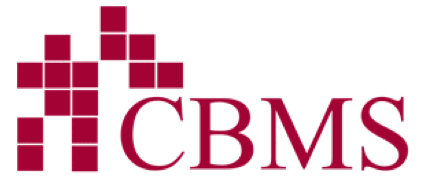By: Rachel Levy, Deputy Executive Director MAA @mathcirque
The Mathematical Association of America (MAA) recognizes the unusual circumstances faced by the mathematical sciences community during the COVID-19 pandemic. Many students, staff, and faculty are facing demanding challenges due to increased caregiving responsibilities, economic hardships, and a lack of resources for teaching and learning, including access to professional space and technology. We recognize the disproportionate impact on primary caregivers (many of whom are women), people of color, VITAL faculty, and students.
All of the MAA’s core values—community, inclusivity, communication, and teaching and learning—have been affected. Faculty and students need flexibility in order to ensure that educational and personal needs are met. Institutions should be particularly attentive to the needs of people with less pay, job security, or power, as well as the needs of primary caregivers when addressing issues. The MAA urges administrators and policy-makers to implement supportive practices and policies for students, staff, and faculty during this exceptionally stressful time.
1. COURSE EXPECTATIONS
Be flexible in setting expectations for content, assessment, and placement. Faculty and students are experiencing pressure to conduct business as usual under uniquely difficult circumstances. We encourage institutions to allow faculty to distinguish between essential and discretionary course content, to streamline courses and adjust their pace. We encourage administrators to give faculty permission to rethink assessment to focus less on cheating and more on providing options for students to demonstrate learning in ways that reflect workplace best practices: collaboration, use of tools and resources, and attribution.
2. VIRTUAL TEACHING
Ensure there are asynchronous options, without penalty. Students may lack the physical and technological resources they had during on-campus learning, including time and space for learning, access to technology, and common time zones. Course materials should be made available in an asynchronous manner (through recorded lectures or notes) even if classes are held live. Since students may not be comfortable sharing video, conversing, or making mistakes if they are being recorded, recording and distributing live classes can be problematic. Live classes should also use available security measures to keep classrooms free of online harassment.
3. GRADES
Consider temporary adjustments to academic policies, clearly document policies on transcripts and communicate these adjustments. Institutions are encouraged to publish temporary policies on incomplete grades, pass/fail (or similar structures) and course withdrawal. Policies can reduce stress and support equity for both students and instructors. At the same time, institutions must be attentive to accreditation and licensure issues, graduate and professional school admissions, and future employment. For instance, explanations on transcripts and letters of recommendation may be required, so that a grade of “passing” is not interpreted as “barely passing.” Additionally, over the next few years, academic programs and employers must take these challenging times into account when evaluating applicants.
4. COURSE EVALUATIONS
Use course evaluations only to inform future planning, not as part of Faculty/TA files, evaluation, or tenure and promotion decisions. In normal circumstances, the use of student course evaluations in tenure and other decisions is problematic because of their known biases. In a time impacted by a global pandemic, the use of these evaluations in faculty decisions would be unethical. The move to all virtual teaching and learning was abrupt and done without the consent of students or faculty, who had little time to prepare or adjust. Teaching work attempted at this time cannot be considered representative. If course evaluations from this time are to be used at all, it should be to help faculty reflect on their work during this difficult time. They should not be saved by the institution or made available in any form for future formal evaluation.
5. TENURE/PROMOTION
Default to an extension of tenure-clock with flexible opt-out later. It is impossible to know the full impact of the global health crisis at this moment in time, yet institutions must begin to consider how this crisis can be accounted for equitably in future tenure/promotion decisions. As a first step, we encourage institutions to deploy or create policies that extend the tenure-clock for all tenure-track faculty in light of the work disruption caused by the pandemic. Since extending the tenure clock is enduring, policies should provide flexibility for faculty to opt-out of the extension at a later time. We recognize that traditional pay gaps are likely to increase due to the pandemic and encourage administrators to consider further actions to support equity.
Co-authors:
Ed Aboufadel, Chair, MAA Committee on Faculty & Departments
Jenna Carpenter, Past Chair, MAA Council on the Profession
Carrie Diaz Eaton, Chair, MAA Committee for Minority Participation in Mathematics
Michael Dorff, MAA President
Rick Gillman, Chair, MAA Council on the Profession
Rachel Levy, MAA Deputy Executive Director
Audrey Malagon, MAA Committee on Faculty & Departments
Michael Pearson, MAA Executive Director
Jennifer Quinn, MAA President-Elect
Resources provided by Amy Atchison, Assoc. Prof. of Political Science, Valparaiso University
